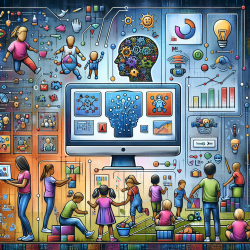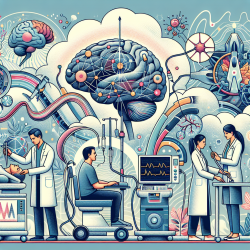Care for children with autism spectrum disorder (ASD) can be challenging for families and medical care systems. However, recent advancements in technology, particularly in machine learning, offer promising tools to support practitioners in making data-driven decisions. The study "Informing Developmental Milestone Achievement for Children With Autism: Machine Learning Approach" highlights how machine learning can predict developmental milestones based on family and child sociodemographic characteristics.
Key Findings from the Research
The study utilized mCARE, a mobile-based app, to track developmental milestones in 300 children with ASD in Bangladesh. The researchers implemented various machine learning algorithms, including decision trees, logistic regression, K-nearest neighbor (KNN), and artificial neural networks (ANN), to predict milestone achievements such as brushing teeth, asking to use the toilet, urinating in the toilet or potty, and buttoning large buttons.
Here are the key findings:
- Accuracy of Models: The ANN model showed the highest average accuracy (above 80%) across all milestones, making it the most reliable algorithm among those tested.
- Influential Factors: Family expenditure, family size/type, living places, and parents’ age and occupation were the most influential sociodemographic factors affecting milestone achievement.
- Milestone Achievements: The models achieved high accuracy rates for specific milestones: brushing teeth (95%), asking to use the toilet (84%), urinating in the toilet or potty (91%), and buttoning large buttons (76%).
Practical Applications for Practitioners
The insights from this study can significantly enhance the effectiveness of online therapy services provided by companies like TinyEYE. Here are some practical applications:
- Personalized Intervention Plans: By understanding the sociodemographic factors that influence milestone achievements, practitioners can tailor intervention plans to meet the specific needs of each child.
- Data-Driven Decisions: The high accuracy of the ANN model suggests that machine learning can be a valuable tool for making data-driven decisions in therapy planning and monitoring.
- Enhanced Family Support: The study highlights the importance of family resources in child development. Practitioners can use this information to provide more holistic support that includes family education and resource allocation.
Encouraging Further Research
While this study offers valuable insights, it also opens the door for further research. Practitioners are encouraged to explore how machine learning models can be integrated into their practice to improve outcomes for children with ASD.
Conclusion
The application of machine learning in predicting developmental milestones offers a revolutionary approach to supporting children with ASD. By leveraging data-driven insights, practitioners can create more personalized and effective intervention plans, ultimately leading to better outcomes for children and their families.
To read the original research paper, please follow this link: Informing Developmental Milestone Achievement for Children With Autism: Machine Learning Approach.










